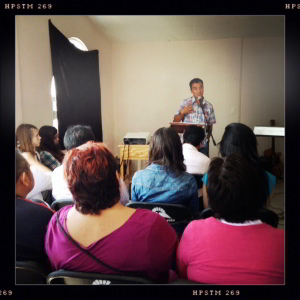Discernment: Wrapping It Up (Notes on Discernment)
The last study on discernment was maybe a bit of a risk, but it was fun. I took four important questions and gave a common false teaching on each one (common in our area).
Yes, I was very clear that the teaching was false, and then I took the time to clean up the mess afterwards. 🙂
Part of the risk is that it often takes longer to explain the truth from Scripture than an error. When you’re free to take verses out of context, ignore parallel passages, make things up out of thin air – well, that’s just easier than digging to find out what the Bible is really saying.
I’m not going to get into this now, but the four questions were:
- Who is Jesus?
- What is the Gospel?
- What are the Scriptures?
- Why does God bless us?
The benefit is that it gave us the opportunity to see the many ways you can completely miss the truth, or hide it. Eventually we all have to get out into the world of ideas, pull out our brains, and get to work.
I did stick to things that most people already have to deal with. Because, after all, our job is not to go searching for new error. We don’t want to invite more confusion. It’s much more fun to enjoy the truth. As Paul put it in Philippians 4:8-9:
Finally, brothers, whatever is true, whatever is honourable, whatever is just, whatever is pure, whatever is lovely, whatever is commendable, if there is any excellence, if there is anything worthy of praise, think about these things. What you have learned and received and heard and seen in me — practice these things, and the God of peace will be with you.
We ended our study with a few thoughts. In reviewing our study, we were reminded that discernment may take time and effort, but the rewards are forever.
And we should never forget the keywords – Patience, Humility, and Grace – when interacting with others.
To close out this topic for now (I will post once more to bring it all together), here are a few thoughts related to discernment from Ephesians 5. They remind us of another keyword we should never forget – love:
Therefore be imitators of God, as beloved children. And walk in love, as Christ loved us and gave himself up for us, a fragrant offering and sacrifice to God.
But sexual immorality and all impurity or covetousness must not even be named among you, as is proper among saints.
…
Let no one deceive you with empty words, for because of these things the wrath of God comes upon the sons of disobedience. Therefore do not become partners with them; for at one time you were darkness, but now you are light in the Lord. Walk as children of light (for the fruit of light is found in all that is good and right and true), and try to discern what is pleasing to the Lord.Take no part in the unfruitful works of darkness, but instead expose them.
…
Look carefully then how you walk, not as unwise but as wise, making the best use of the time, because the days are evil.Therefore do not be foolish, but understand what the will of the Lord is.
And do not get drunk with wine, for that is debauchery, but be filled with the Spirit, addressing one another in psalms and hymns and spiritual songs, singing and making melody to the Lord with your heart, giving thanks always and for everything to God the Father in the name of our Lord Jesus Christ, submitting to one another out of reverence for Christ.




